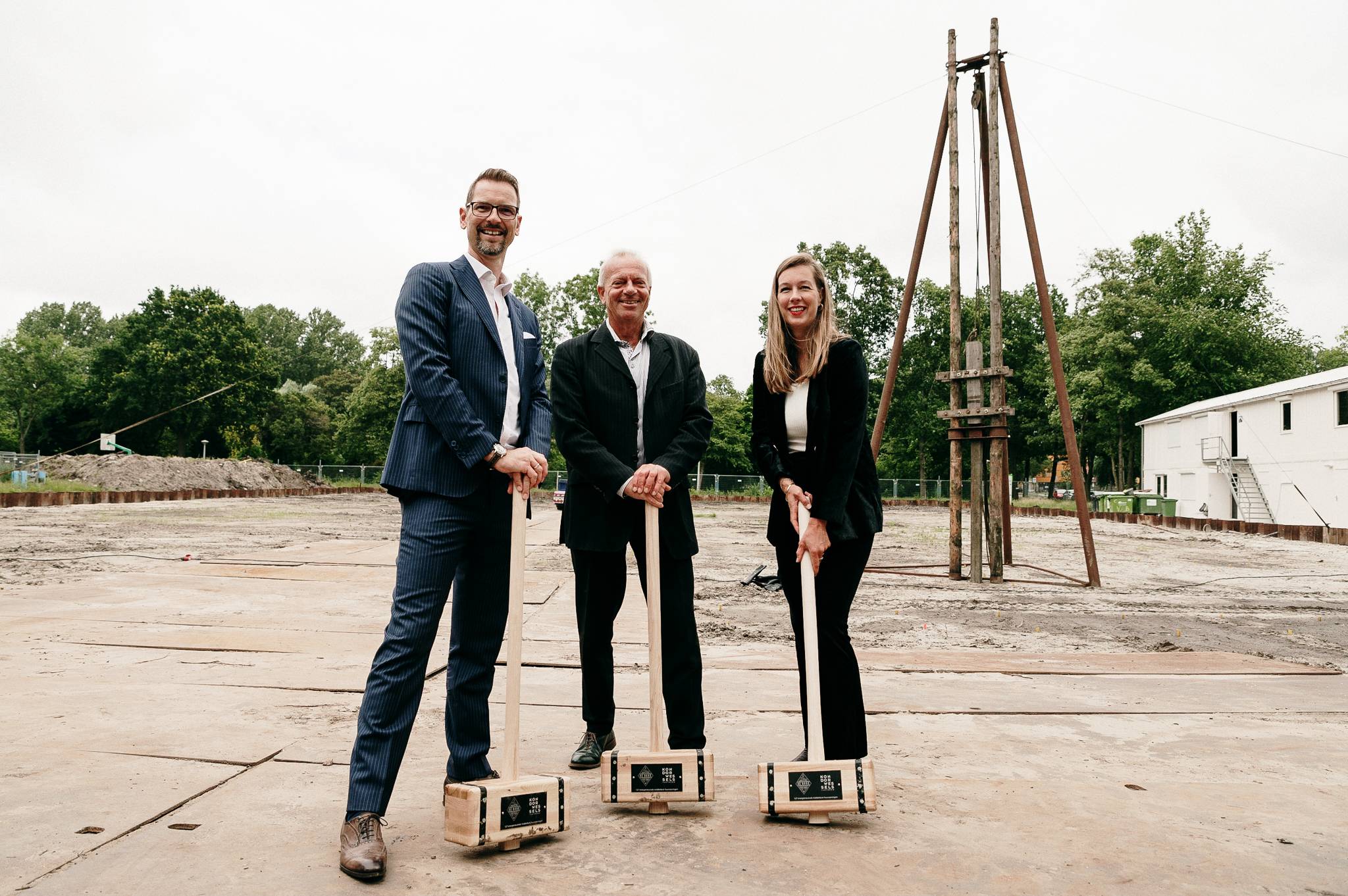Construction of De Baak, a new-build project with 127 sustainable mid-priced rental homes on the corner of the Lodewijk van Deysselstraat and the Colijnstraat in Amsterdam, started officially on Thursday 1 July 2021. Silvie Bruijning from KondorWessels Vastgoed, Matthias Hübner from the Zurich Insurance Group and Ronald Mauer from the Nieuw-West borough council helped sink the first pile into the ground using an old-fashioned piledriver, and pupils from group 8 at the Leer Unit primary school in Geuzenveld jointly unveiled the construction sign.
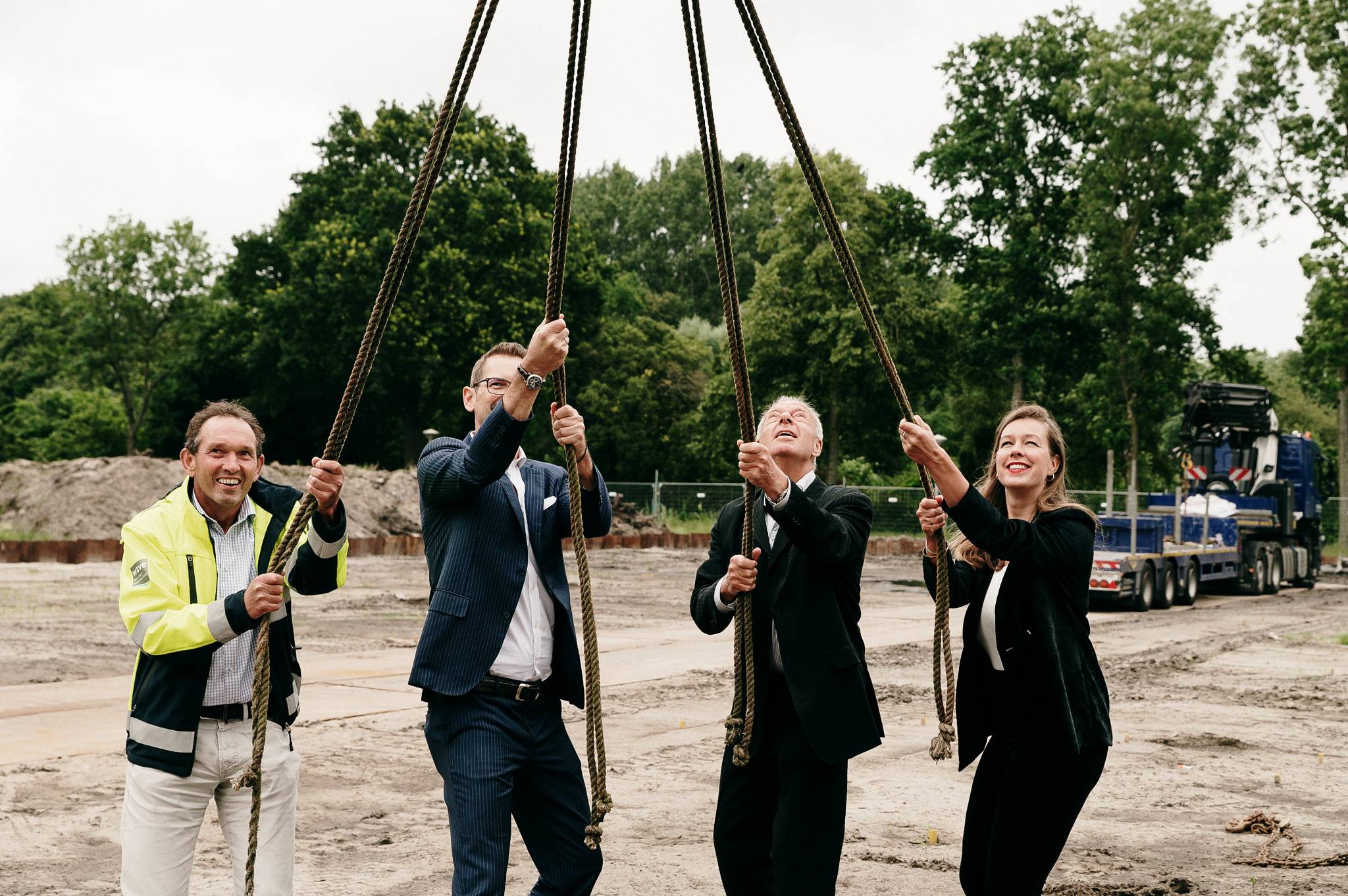
The value of De Baak
While enjoying a (soft) drink, the obviously proud developers Silvie, Marius, Michiel spent time talking with the investors and stakeholders from the municipality about the neighbourhood’s future and the role that De Baak will play in it. Amsterdam urgently needs more homes in the mid-priced rental segment which are affordable for residents with middle incomes. Although luxury homes and apartments are fantastic to look at, they are not always within everyone’s reach. By constructing De Baak, KondorWessels Vastgoed and the Zurich Insurance Group are helping to create more mid-priced homes in the municipality of Amsterdam so that more people are able to live in the popular capital city.
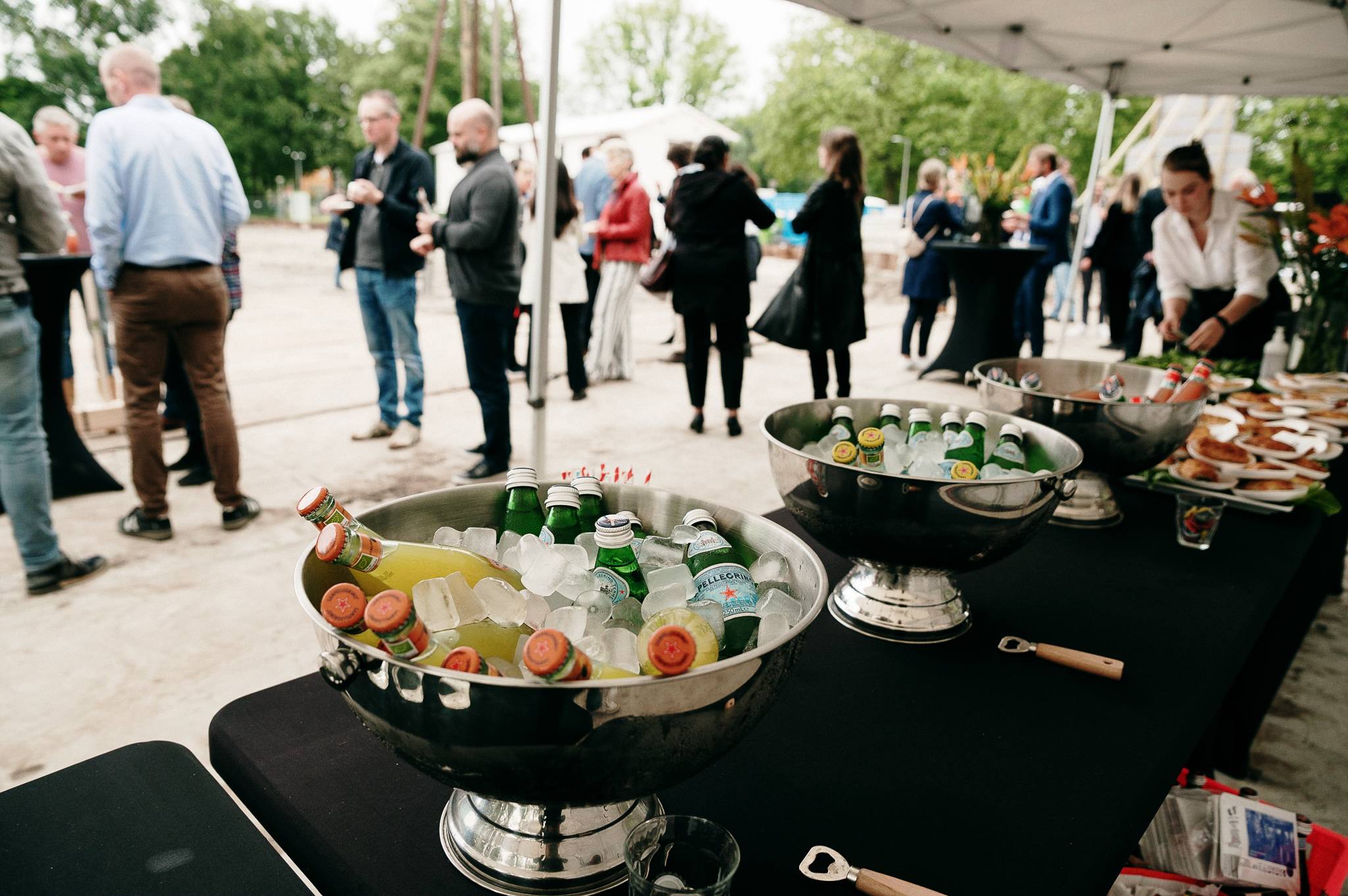
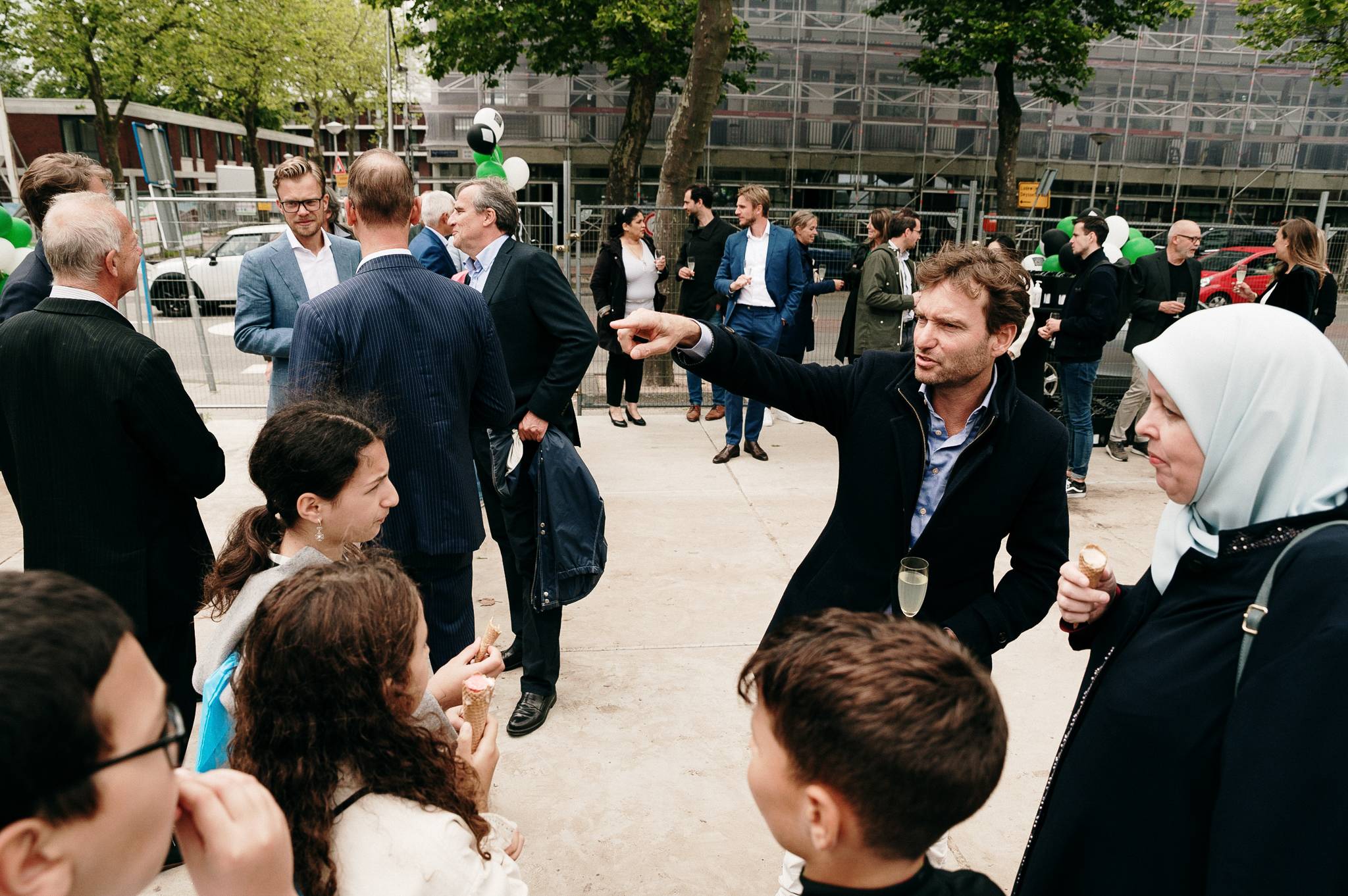
Coming together in De Baak
De Baak is being constructed in the Bakemabuurt in the Geuzenveld-Slotermeer neighbourhood in Amsterdam, a place which is popular among families. With five parks close by, the neighbourhood is one of the greenest in Amsterdam where there is enough space for residents to enjoy nature. In addition to that, the centre of Amsterdam is a stone’s throw away and that makes it accessible for residents who want to work in the city. One of the most important fundamentals of De Baak is the need for residents to meet. A questionnaire among local residents revealed a considerable need for an enjoyable and safe place for them to come together. ‘De Huiskamer’, or Living Room, is going to be part of De Baak and will be a place where young people can do their homework and access a small library and a place where residents can hold meetings. De Huiskamer is going to be light and transparent in line with the rest of the building. As a result, residents will be able, after talking through their day, to enjoy the green surroundings which characterise the building’s location.
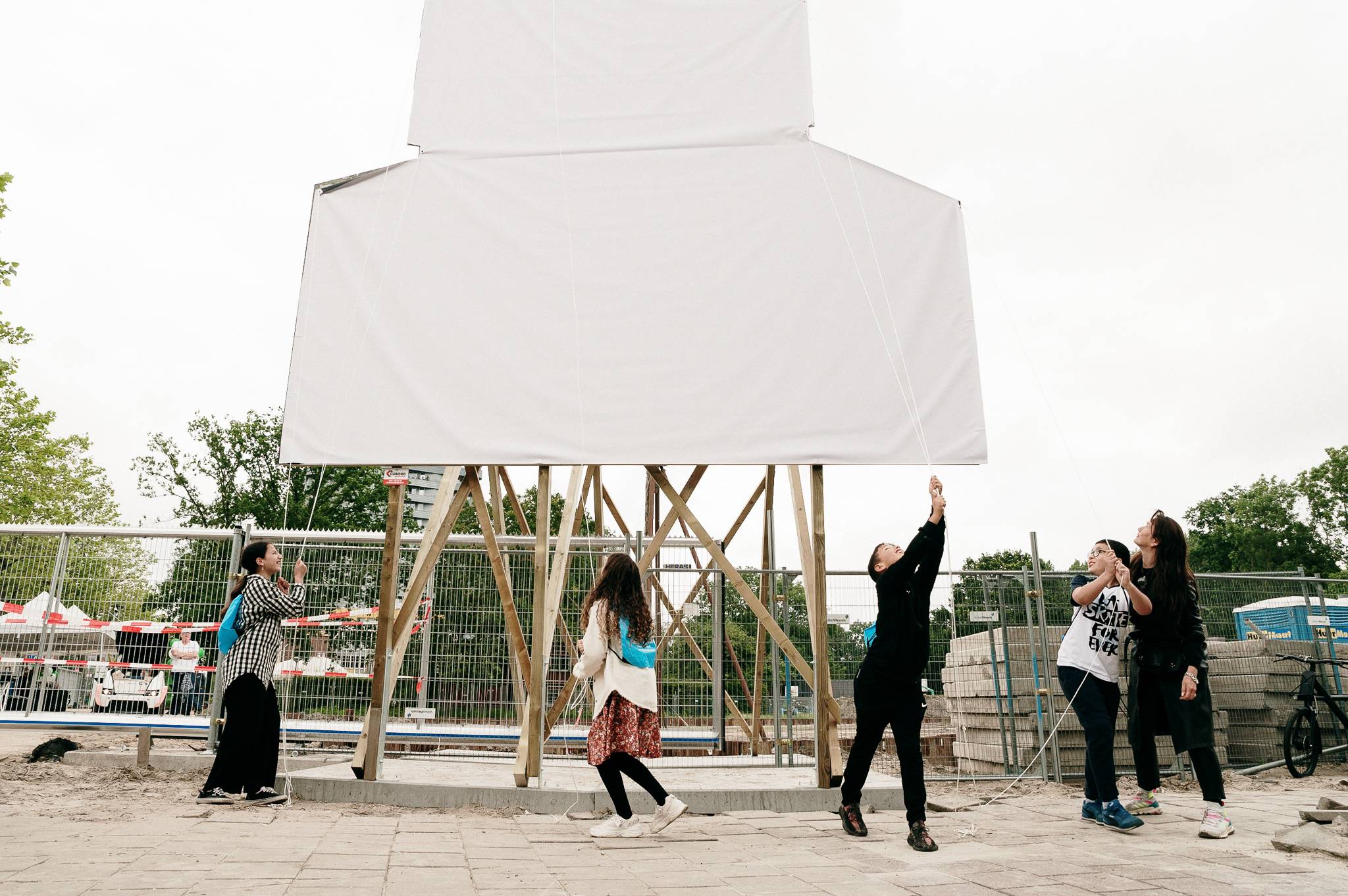
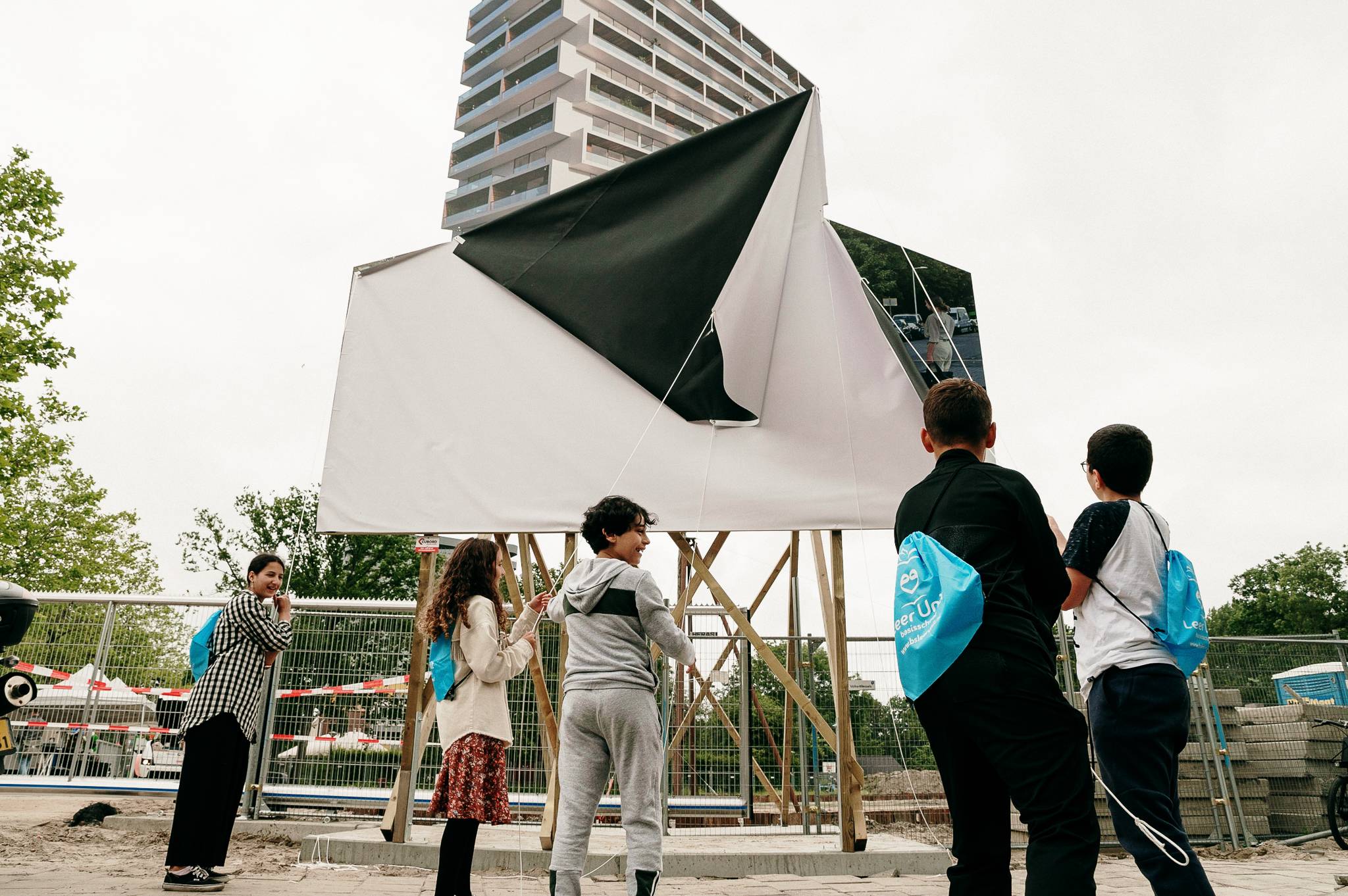
Looking to the future
De Baak is an excellent example of sustainable urban development. The project is going to be entirely climate neutral and rainproof and its development will provide maximum opportunities for sustainability and circularity. Innovative solutions, such as the PV installations on the roofs, in combination with vegetation as a natural way of cooling the homes, will ensure that De Baak becomes a building that will stand the test of time. De Baak is being embedded in a green environment and provides a link between its residents, nature and the city.
